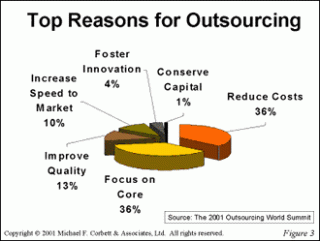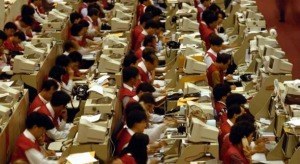Reflect on how is the ‘Fight for $15’ an issue of race, gender and class? Reflect on Goldstein’s lecture and address how it is an important aspect of understanding digital diversity. What is your analysis on the automation of service/fast food labor? Use these links to get started:
This is a topic I am actually extremely passionate about and have personally done a bit of research on. My mother when she was 18 personally started a union at a Burger King in New York and was fired from her job because of it. She has always raised me to believe that people are what are important and that though corporations have the legal rights of a citizen, generally they support no ones best interest. Our society is breeding an attitude of “every man for himself” and everyone should do it on their own, and this is the kind of society that breeds a lack of compassion for our human race. I believe strongly that though this might be just a matter of the lower class at this point in time, it will trickle down and effect the middle class, all genders and races.
Currently the only people benefiting from large corporations are the minority population, as in the CEO’s, CFO’s etc. Who is to decide who’s job is more important? Why is it just because employees are fast food workers that they are undeserving of a livable income? “Fast food is a $200 billion a year industry and retail is a $4.7 trillion industry, yet many service workers across the country earn minimum wage or just above it and are forced to rely on public assistance programs to provide for their families and get healthcare for their children” (Fight for 15). I have been reading tweets being tweeted at @fightfor15 and it is interesting to see people who normally would have no voice to fight and petition, fighting for their families and children. I saw one post from a women saying “how can you say we make enough money when we are eating ramen for lunch and dinner?”. For those who think it is easy to rely on food stamps and government assistance, they are wrong. Food stamps generally supply coupons for food that has little dietary value. Though I personally have never experienced how hard it is, both of my parents growing up have dealt with the struggles of food stamps and eating subpar food.
Maybe $15 dollars seems extreme to some, and maybe this campaign is asking for too much, but we have to start somewhere. I applaud people for taking such a big leap for human rights. According to the Fight for 15 website these are the current statistics.
We place so much more value on technical skills and technology. The more we continue to grow as a digital powerhouse, the more we disregard blue collar workers. Is our society going to become run entirely by computers? I know this is all very extreme and I can’t talk because I am digital technology major but I just think we need to place more of an importance on people, and caring for people.






